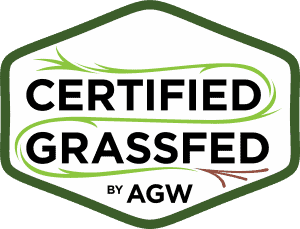
- The Certified Grassfed by AGW label is highly meaningful and verified. It means that the animals producing meat or dairy were fed a 100% grass and forage based diet, with no grain. Only producers who are also Animal Welfare Approved certified are eligible for the Certified Grassfed by AGW. We rate Animal Welfare Approved as a highly meaningful label for animal welfare.
Is the label verified?
Yes
Is the meaning of the label consistent?
Yes
Are the label standards publicly available?
Yes
Is information about the organization publicly available?
Yes
Is the organization free from conflict of interest?
Yes
Was the label developed with broad public and industry input?
Yes

This label can be found on: beef, dairy products, sheep and lamb, goat, bison
PROGRAM NAME: Certified Grassfed by AGW is an optional additional certification to Animal Welfare Approved.
ORGANIZATION: Certified Grassfed by AGW is a program of A Greener World.
url: www.agreenerworld.org/solutions-and-certificates/certified-grass-fed/
LABEL STANDARDS: www.animalwelfareapproved.us/standards/grassfed/
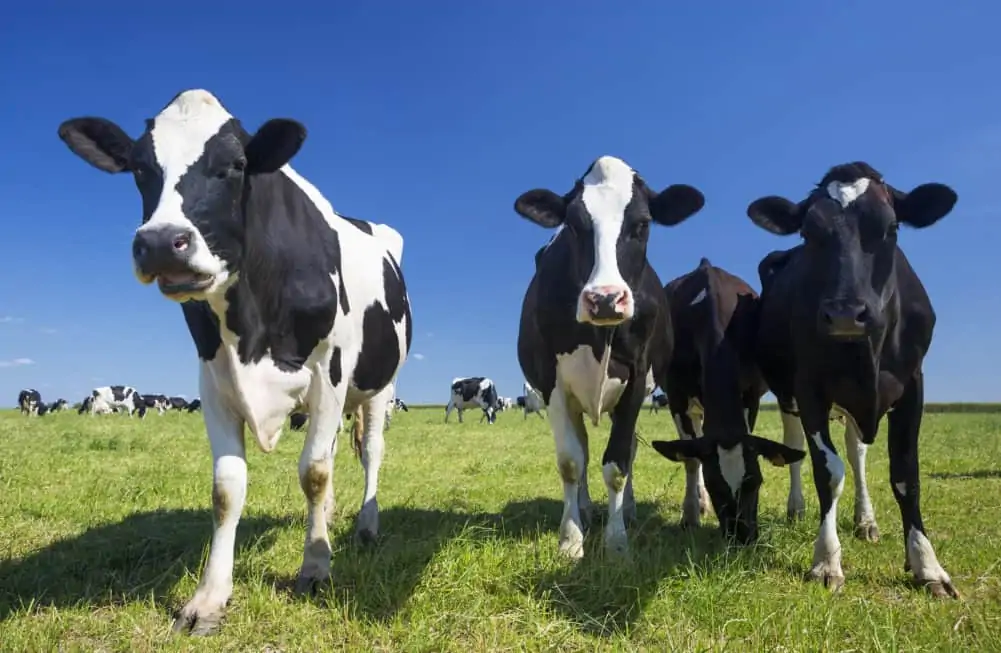
What this label means
The Certified Grassfed by AGW label means that the animals used to produce the meat or dairy were raised humanely from birth to slaughter on farms that meet the Animal Welfare Approved standards, and in addition, were given a 100% grass and forage based diet, with the exception of milk prior to weaning. Animals were never fed grain.
To obtain the Certified Grassfed by AGW label, producers have to first meet the Animal Welfare Approved species-specific standards (e.g., beef cattle standards). These standards require that animals are raised on family farms (on which the farmer owns the animals) with adequate and well-managed space indoors and outdoors, that promote animal health and allow the animals to engage in their natural behaviors.
The Animal Welfare Approved standards require continuous outdoor pasture access for beef cattle and dairy cows; however, without the additional Certified Grassfed by AGW certification, beef cattle and dairy cows on pasture could be fed grain in addition to grass. The Animal Welfare Approved standards also require that a pasture management plan must be in place that ensures the nutritional requirements can be met through grazing and that the pasture remains clean and not polluted with manure.
The AWA standards prohibit routine antibiotic use (antibiotics can only be used to treat sick animals), artificial hormones for promoting growth, and other drugs given in the absence of disease to control or prevent disease or promote growth.
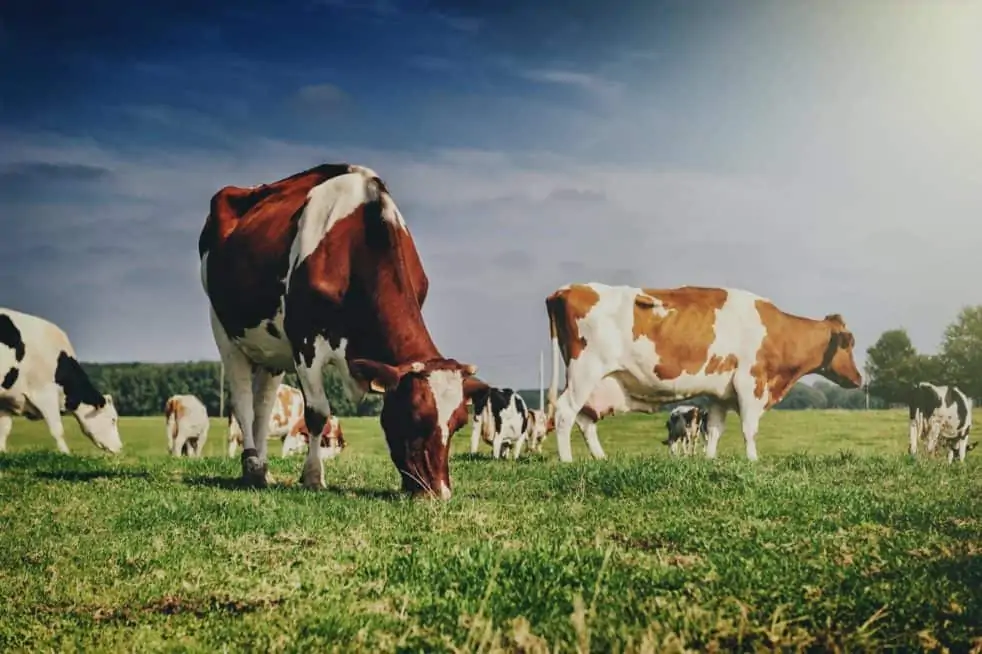
Why it matters
Beef and dairy cattle are ruminants, and their digestive systems have evolved to digest high-fiber and low-starch grasses. They gain weight more rapidly when they are fed grain in addition to grass, which has become standard practice in the beef and dairy industries, but grain-feeding comes with a cost to the nutritional value of the meat and dairy they produce, and the animals’ digestive health.
Nutritional benefits. Studies suggest that there are important health benefits from consuming 100% grass‐fed meat and dairy compared with grain-fed meat and dairy. Studies have found that, compared to grain-fed alternatives, grass-fed meat contains lower levels of overall fat and higher levels of vitamins and antioxidants; grass-fed meat and dairy have also been found to have higher levels of omega-3 fatty acids, which appear to provide health benefits.
Animal health benefits. Ruminants on a grass-based diet without grain are less likely to suffer from gastrointestinal disorders such as acidosis. With acute acidosis, the acidity level and glucose levels in the animal’s intestines increase markedly due to grain consumption, leading to damage to the intestinal wall or other health conditions.
Another health effect of a high-grain diet for cattle is a higher rate of liver abscesses. For prevention of liver abscesses in grain-fed cattle, the FDA has approved numerous antibiotics that can be added to cattle feed – the same grain-based feed that is often contributing to the abscesses in the first place. Antibiotics approved for this purpose include the critically important antibiotics tylosin, ceftiofur, virginiamycin and chlortetracycline. A sustainable way to prevent liver abscesses is to promote healthy animals with a species-appropriate diet of grass and forage.
CONSUMER REPORTS EVALUATION
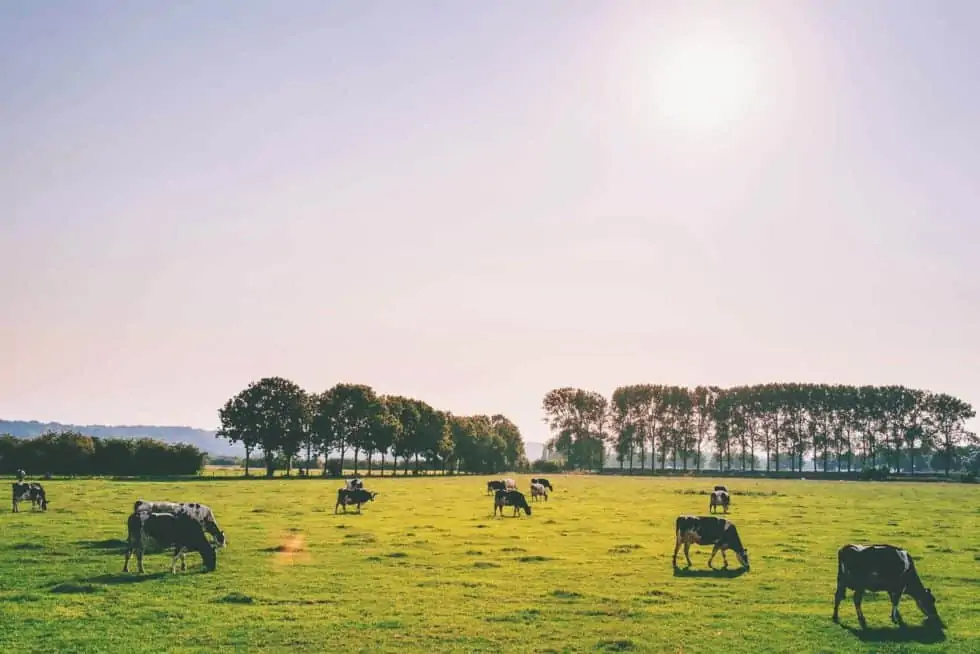
How meaningful is this label?
Highly Meaningful
Certified Grassfed by AGW assures consumers the animals were fed a 100% grass and forage based diet, with no grain, throughout their lives. Only herds that are certified to the Animal Welfare Approved standards can be certified to the Certified Grassfed by AGW standards. We rate Animal Welfare Approved as a highly meaningful label. The Animal Welfare Approved standards also prohibit antibiotic use except to treat sick animals, require grazing on pasture during the growing season, prohibit the use of growth promoting drugs including artificial hormones, and more.
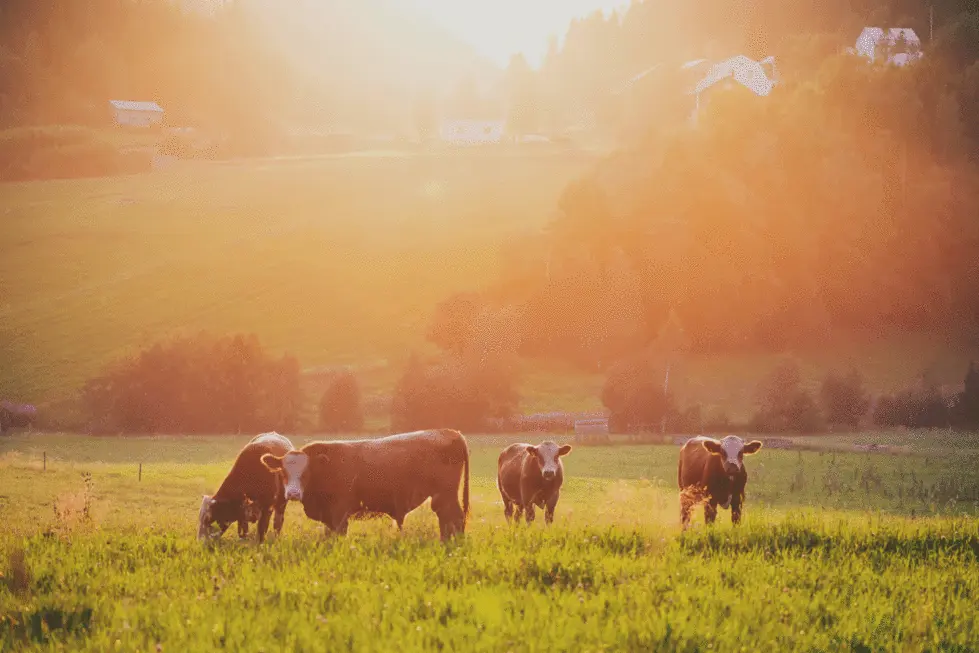
Is the label verified?
Yes.
The Certified Grassfed by AGW is an additional certification to Animal Welfare Approved certification. The Animal Welfare Approved program is ISO-17065 accredited and works with a team of auditors and certification staff who determine through yearly audits whether a farm meets the standards. The same auditors perform the Certified Grassfed by AGW audit.
Is the meaning of the label consistent?
Yes.
Are the label standards publicly available?
Yes.
Standards are available at: www.animalwelfareapproved.us/standards/grassfed/
Is information about the organization publicly available?
Certified Grassfed by AGW is an additional certification of Animal Welfare Approved, a program of A Greener World.
Board of Directors: Yes. The members of the board of directors for A Greener World are listed on the website.
Financial information: Yes. As a 501(c)(3) organization, financial information is available.
Is the organization free from conflict of interest?
Yes. Certified Grassfed by AGW is an optional additional certification of the Animal Welfare Approved program, which is free from conflict of interest.
Standards development: Yes. The organization has a conflict of interest policy that prohibits board members and staff from having an interest in a certified farm or operation. The Standards Board sets the Animal Welfare Approved standards, and includes at least one producer. As an ISO-17065 accredited certifying agency, the organization adheres to conflict of interest policies for standards development.
Verification: Yes. The conflict of interest policy applies to anyone employed by the organization, including auditors on a contract basis.
Was the label developed with broad public and industry input?
Yes.
Standards development: The Certified Grassfed by AGW standards were developed by a team of standards writers at AGW with input from ruminant nutritionists and farmers who were already certified to the AWA standards and managing their livestock to 100% grassfed requirements. AWA certified farmers and the public were given the opportunity to review the draft of the standards and provide input.
Standards updates: Standards are updated annually based on auditor and producer feedback. The Standards Board carries out the standards updates. A draft of the updated standards will be posted online for public comment.